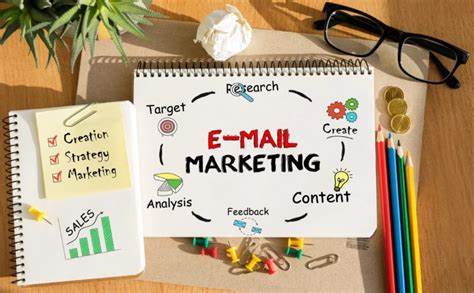In today’s fast-paced digital age, technology has become an integral part of every aspect of our lives, including the way businesses operate and market their products or services. Gone are the days when traditional marketing strategies like print advertisements and billboards were sufficient to capture the attention of consumers. With the rapid advancements in technology, businesses have had to adapt their marketing strategies to keep up with the ever-changing digital landscape. From social media platforms to artificial intelligence, technology has revolutionized the way businesses reach out to their target audience and engage with them. In this article, we will explore the transition from traditional to tech-savvy marketing strategies and how businesses can effectively leverage technology to stay ahead in this competitive market.
From Traditional to Tech-Savvy: Adapting Marketing Strategies with Technology
Gone are the days when marketing strategies relied solely on traditional methods such as print advertisements, billboards, and cold calling. With the rapid advancement of technology, businesses are now embracing the digital era and adapting their marketing strategies to keep up with the ever-evolving consumer landscape.
Technology has not only transformed the way businesses operate but also the way they connect with their target audience. By leveraging the power of technology, companies can now reach a wider audience, analyze consumer behavior, and tailor their marketing efforts to deliver personalized experiences.
One of the most significant benefits of technology in marketing is the ability to reach a global audience. With the rise of social media platforms, businesses can now connect and engage with customers from all corners of the world. Platforms like Facebook, Instagram, and Twitter allow companies to target specific demographics and create content that resonates with their audience. This level of personalization was unimaginable in traditional marketing methods.
Moreover, technology has given rise to various digital marketing tools that enable businesses to track and analyze consumer behavior. For instance, web analytics tools provide valuable insights into website traffic, user engagement, and conversion rates. This data allows marketers to make informed decisions and optimize their campaigns accordingly. Additionally, email marketing software allows businesses to reach their customers directly, track open rates, and tailor their approach based on individual preferences.
Another significant shift brought about by technology is the rise of influencer marketing. Influencers, who are individuals with a significant following on social media platforms, have become powerful marketing tools. By partnering with influencers, businesses can tap into their vast networks and reach a highly targeted audience. This form of marketing has proven to be highly effective, as consumers tend to trust recommendations from people they admire.
Furthermore, technology has revolutionized the way businesses advertise their products or services. Traditional advertising methods often required significant financial investments and had limited reach. However, with the advent of online advertising platforms such as Google Ads and social media advertising, businesses can now target specific keywords, demographics, and interests. This level of precision allows for more effective advertising campaigns and a higher return on investment.
However, with all the benefits that technology brings, businesses must also be aware of the challenges it presents. The digital landscape is constantly evolving, and staying up-to-date with the latest trends and technologies can be a daunting task. Additionally, with the increase in online advertising, consumers are becoming more discerning and selective. Therefore, businesses need to ensure that their marketing efforts are genuine, relevant, and add value to the customer’s experience.
In conclusion, technology has revolutionized the way businesses market their products or services. From reaching a global audience to analyzing consumer behavior, technology has provided businesses with powerful tools to adapt their marketing strategies. However, businesses must also be mindful of the challenges that come with technology and ensure that their marketing efforts are genuine and add value to the customer’s experience. By embracing technology and staying on top of the latest trends, businesses can thrive in the digital era and connect with their target audience in more meaningful ways.



